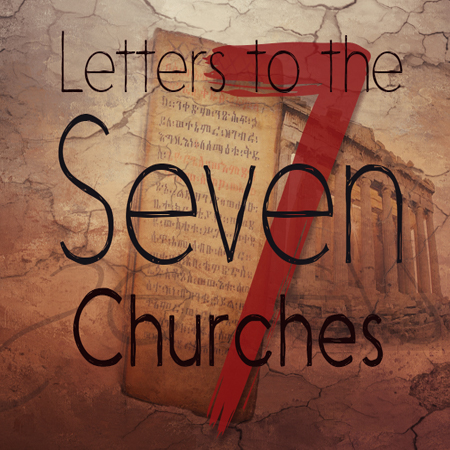14 “And to the angel of the church in Laodicea write: ‘The words of the Amen, the faithful and true witness, the beginning of God’s creation.
15 “‘I know your works: you are neither cold nor hot. Would that you were either cold or hot! 16 So, because you are lukewarm, and neither hot nor cold, I will spit you out of my mouth. 17 For you say, I am rich, I have prospered, and I need nothing, not realizing that you are wretched, pitiable, poor, blind, and naked. 18 I counsel you to buy from me gold refined by fire, so that you may be rich, and white garments so that you may clothe yourself and the shame of your nakedness may not be seen, and salve to anoint your eyes, so that you may see. 19 Those whom I love, I reprove and discipline, so be zealous and repent.20 Behold, I stand at the door and knock. If anyone hears my voice and opens the door, I will come in to him and eat with him, and he with me.21 The one who conquers, I will grant him to sit with me on my throne, as I also conquered and sat down with my Father on his throne. 22 He who has an ear, let him hear what the Spirit says to the churches.’”
The final of Jesus’ letters is addressed to the church in Laodicea. This city was known for its banking, medicinal, and textile industries. Overall, however, the city was fairly unremarkable because of its history of political compromise and accommodation of the various empires which gained influence over them. The church within the city in all likelihood had a close relationship with the church in Colossae given the proximity of the two cities. In Col. 4:16 Paul told the Colossians that the letter was to be taken and read to the church in Laodicea and that a letter sent to that church (possibly Ephesians or a letter which has now been lost) was to be read to the church in Colossae. Having received letters from both Paul and John would have placed the church in Laodicea in unique company alongside Ephesus. This letter sent by Christ through John was not a letter of commendation, however, but was instead both a rebuke and an invitation.
Christ begins by presenting Himself to the church as “the Amen, the faithful and true witness, the beginning of God’s creation.” These terms are all related to His person in light of the resurrection. The Greek word for “beginning” is archē which in this verse means “the person or thing that commences, the first person or thing in a series, the leader.” The reference is to Christ as the beginning of the New Creation, something confirmed by the OT reference to Christ as the “Amen” of God (Isa. 65:16 – “God of truth” is literally translated as “God of Amen”), a verse which precedes Isaiah’s prophecy of the coming New Creation (Isa. 65:17-25). The church at Laodicea needs to be reminded that Christ is the faithful witness who testified to the Word of God even to death and that this has led to His resurrection which has shown Him to be the beginning of God’s new creational work.
The church needs to see Christ this way because of their current spiritual condition which the Lord describes as “lukewarm.” In the ancient world, water that was either hot or cold was considered useful and good for one’s health, while lukewarm water was seen as worthless. Because of the current spiritual condition of the church, they had become worthless to the Lord and were nauseating to Him. What made their condition even worse was that they viewed themselves as being “rich” and “having prospered.” While this may have been true about them in a material sense, the spiritual reality according to the Lord was that they were “wretched, pitiable, poor, blind, and naked.” Although they did not consider themselves to be in need, the reality was that they needed what only Christ Himself could offer.
In response to their need Christ offers to give them true gold (righteousness) instead of the wealth of their banking industry, white garments (a testimony of good deeds) instead of the fine black wool with which they clothed themselves, and eye salve (spiritual discernment) instead of their Phyrgian powder which was used for medicinal purposes. He offers these things to them freely (Isa. 55:1-3) because He loves them enough to rebuke and discipline them; not so that they might be punished, but so they might be reminded of what they have cut themselves off from through their idolatry. If they will repent, He will restore them to fellowship, something he pictures for them with an allusion to Song of Solomon 5:2. Like the Bridegroom of this passage, He stands at the door of His beloved and knocks so that she might invite Him in. They must not be like the woman of the poem who delays and misses out on seeing her bridegroom, but should instead open the door to Him so that they might dine together.
For the one who is restored to fellowship with Christ and who conquers, Jesus promises to grant to him to sit with Him in His throne just as the Father granted for Christ to sit down on His throne following His resurrection and ascension. Just as Jesus shares the authority of the Father over all of creation, believers will share the authority of Christ over His Kingdom as we reign with Him. This will take its consummate form in the New Heavens and New Earth when we will exercise rule and dominion over creation in the way that was intended by God in the original creation (Gen. 1:28).
Join us this Sunday as we invite the Lord to speak His Word to us so that we might be instructed as His people!
Soli Deo Gloria.
-Thomas

